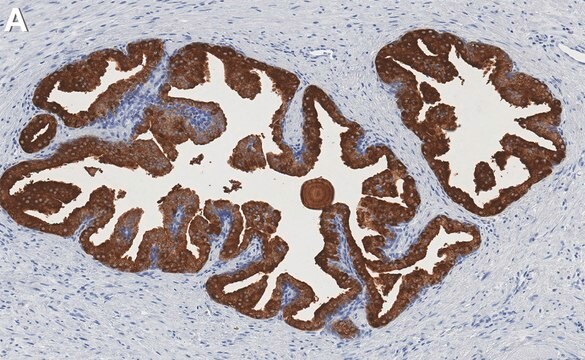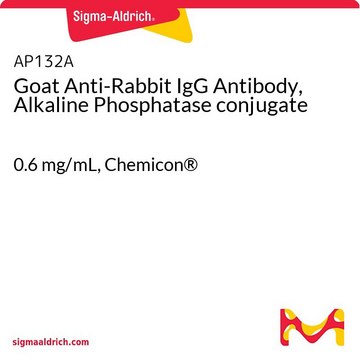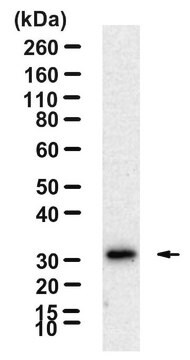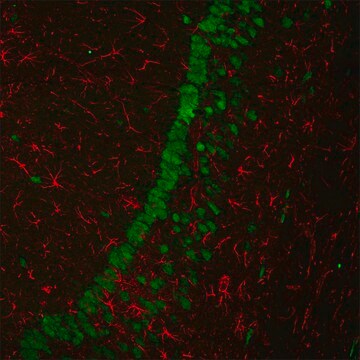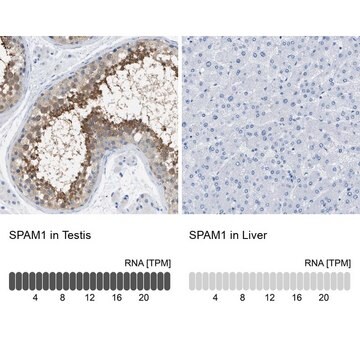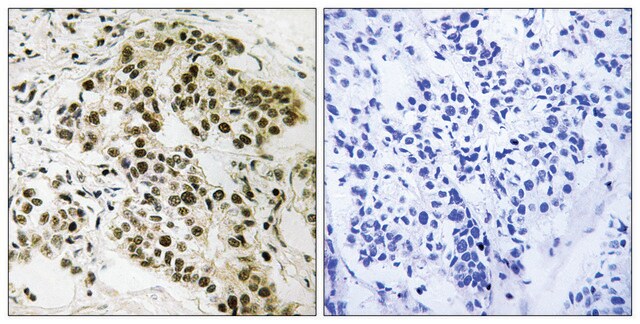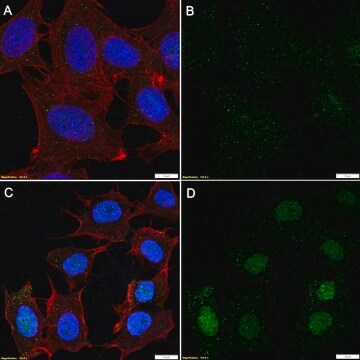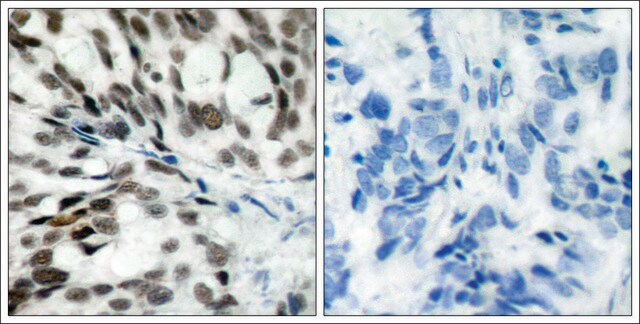ZRB2390
Anti-PHF20 Antibody, clone 1N6 ZooMAb® Rabbit Monoclonal

recombinant, expressed in HEK 293 cells
Sinonimo/i:
Glioma-expressed antigen 2, Hepatocellular carcinoma-associated antigen 58, Novel zinc finger protein, PHD finger protein 20, Transcription factor TZP
About This Item
Prodotti consigliati
Origine biologica
rabbit
Livello qualitativo
Ricombinante
expressed in HEK 293 cells
Coniugato
unconjugated
Forma dell’anticorpo
purified antibody
Tipo di anticorpo
primary antibodies
Clone
1N6, recombinant monoclonal
Descrizione
1N6 Clone
Nome Commerciale
ZooMAb® learn more
Stato
lyophilized
PM
calculated mol wt 115.39 kDa
observed mol wt ~115 kDa
Purificato mediante
using Protein A
Reattività contro le specie
rat, human
Confezionamento
antibody small pack of 25 μL
Caratteristiche più verdi
Waste Prevention
Designing Safer Chemicals
Design for Energy Efficiency
Learn more about the Principles of Green Chemistry.
Convalida avanzata
recombinant expression
Learn more about Antibody Enhanced Validation
tecniche
affinity binding assay: suitable
immunocytochemistry: suitable
immunohistochemistry: suitable
western blot: suitable
Isotipo
IgG
Sequenza dell’epitopo
C-terminal half
N° accesso ID proteina
N° accesso UniProt
Categoria alternativa più verde
Condizioni di spedizione
ambient
Temperatura di conservazione
2-8°C
Informazioni sul gene
human ... PHF20(51230)
Descrizione generale
Specificità
Immunogeno
Applicazioni
Evaluated by Western Blotting in HCT116 cell lysate.
Western Blotting Analysis: A 1:10,000 dilution of this antibody detected PHF20 in HCT116 cell lysate.
Tested Applications
Western Blotting Analysis: A 1:1,000 dilution from a representative lot detected PHF20 in Ntera-2 and L6 cell lysates.
Affinity Binding Assay: A representative lot of this antibody bound PHF20 peptide with a KD of 2.5 x 10-7 in an affinity binding assay.
Immunohistochemistry (Paraffin) Analysis: A 1:100 dilution from a representative lot detected PHF20 in human cerebral cortex tissue sections.
Immunocytochemistry Analysis: A 1:100 dilution from a representative lot detected PHF20 in HCT116 cells.
Note: Actual optimal working dilutions must be determined by end user as specimens, and experimental conditions may vary with the end user.
Descrizione del bersaglio
Stato fisico
Stoccaggio e stabilità
Altre note
Note legali
Esclusione di responsabilità
Non trovi il prodotto giusto?
Prova il nostro Motore di ricerca dei prodotti.
Codice della classe di stoccaggio
11 - Combustible Solids
Classe di pericolosità dell'acqua (WGK)
WGK 1
Punto d’infiammabilità (°F)
Not applicable
Punto d’infiammabilità (°C)
Not applicable
Scegli una delle versioni più recenti:
Certificati d'analisi (COA)
It looks like we've run into a problem, but you can still download Certificates of Analysis from our Documenti section.
Se ti serve aiuto, non esitare a contattarci Servizio Clienti
Possiedi già questo prodotto?
I documenti relativi ai prodotti acquistati recentemente sono disponibili nell’Archivio dei documenti.
Il team dei nostri ricercatori vanta grande esperienza in tutte le aree della ricerca quali Life Science, scienza dei materiali, sintesi chimica, cromatografia, discipline analitiche, ecc..
Contatta l'Assistenza Tecnica.